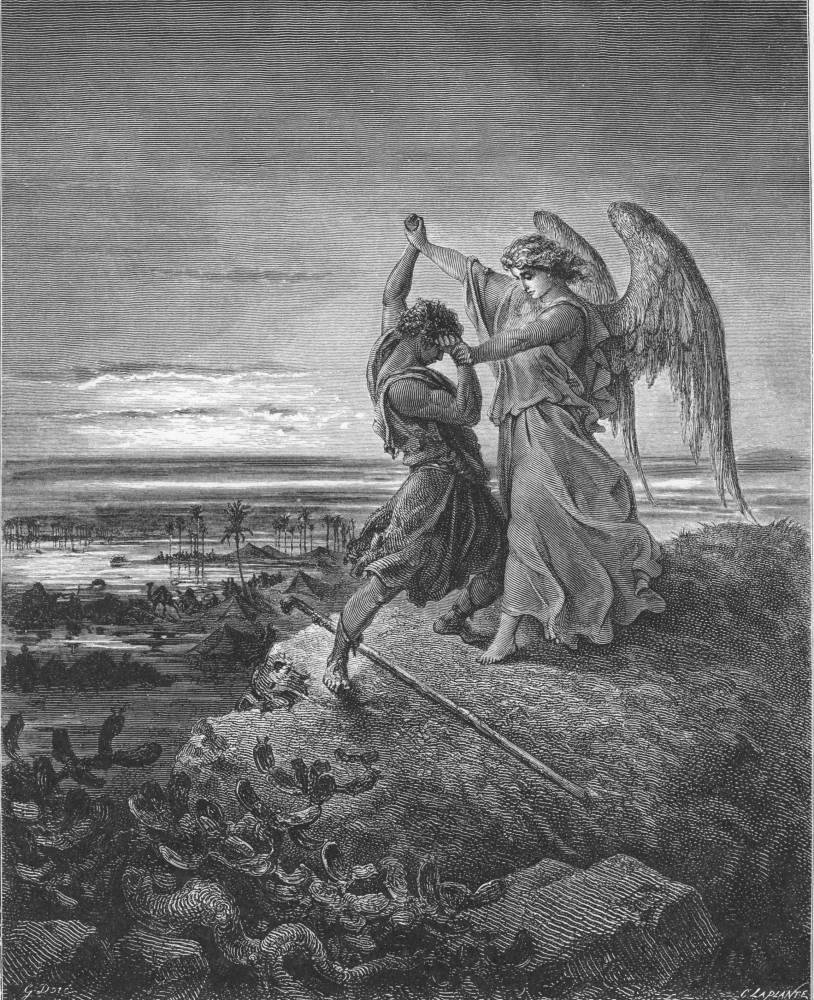I’ve seen two oddly parallel news stories recently. With the power of those things you can’t un-see, they have lingered with me for days.
These stories weren’t about the major upheavals in the headlines, but I believe they demonstrate how the tone set at the top filters down to individual encounters. One happened at a nail salon involving two women. The other occurred at a gas station, involving two men. Both were recorded by the distant eye of surveillance cameras, preserved amidst the drone of everyday transactions in the public arena.

Image from Victorian Web Art
In both cases, someone tried to pay with a stolen credit card. Both transactions involved a charge of around thirty dollars. When the charge was declined, they attempted to drive away without paying.
In both cases, the proprietor followed them and stood in front of their car to prevent them from leaving. Both images show, as if it were any other encounter, how the driver accelerated toward the person in front of their vehicle.
The broadcasts I saw mercifully stopped the video just before showing a vulnerable human body being run over. But just as the mind fills in the micro-moment gaps in such sketchy recordings, I can’t help but imagine in dismay how both of these people were hit and killed.
I have wrestled with these images for days as I try to find some meaning or some opening in which the presence of God might be known.
As I tried writing about them, all I could do was lament the state of our nation. I wanted to find some wisdom, or to talk about the kind of presence that can calm powerful emotions and scary confrontations. But anything I wrote sounded trite.
Eventually I remembered that I could engage with these scenes as if I were working a dream. I could look at these people as if they were characters created by my unconscious, representing a part of me outside my conscious awareness. When an event from waking life hooks us like this, approaching it as we approach a dream can be fruitful.
I asked what part of myself might be like the driver of the car. Is there an aspect of me driven by fear, determined to avoid facing some other shadowy part of myself? Can I find some way to identify with the driver of the car?
And what about the proprietor who was killed? Is there a part of me trying to hold the line on fairness, on what I’m entitled to? A part insisting on acknowledgement yet being overrun in the process? Can I find some resonance with the person whose life was taken in my own life?
Holding both characters at once, with each perhaps symbolizing part of my own psyche, is there some aspect of myself running over another part of me?
In addition, as these are stories from the national news viewed by people throughout the country, how might they represent something about our collective experience? In what way might I be part of a group that operates like the driver? How might I belong to a group being run over?
Just like working a dream, these questions don’t yield an immediate or simple answer. They are, rather, an invitation to enter deeply into my experience and my true identity. These questions challenge me to consider myself with honesty and humility, knowing that I am part of the story unfolding in the world. They invite me to look at what I’d rather not see in myself, and wrestle with it much as Jacob wrestled with the angel.
So what did I learn from this experience?
Seeing the broadcasts of these angry and fearful encounters evoked those emotions in me as well. I remained caught in the anger and fear that created such terrible events until I looked within.
The release I found from being trapped in these emotions began as I paid attention to what was going on inside, and held my dismay with kindness toward myself. This made it possible to see from a different perspective. Looking within, as if looking at a dream, showed me the need for compassion—for myself and for all of humanity. It allowed me to consider the great suffering that exists in every life.
That perspective cultivates openness toward others, even those who seem very different from me. It doesn’t mean allowing someone else to run over me, but I can hold my boundaries with a clearer mind and heart.
Compassion is worth cultivating. It yields curiosity and kindness. It helps us treat ourselves and others more gently.
Compassion helps transcend the simplistic categories of me vs. not-me. I believe it changes our experience in the world. At the very least, it makes difficulties we already experience less painful.
Compassion allows our heart to break for the world without us falling apart. It breaks us open to love, and perhaps even to heal what is hurting in ourselves and others.

Comment